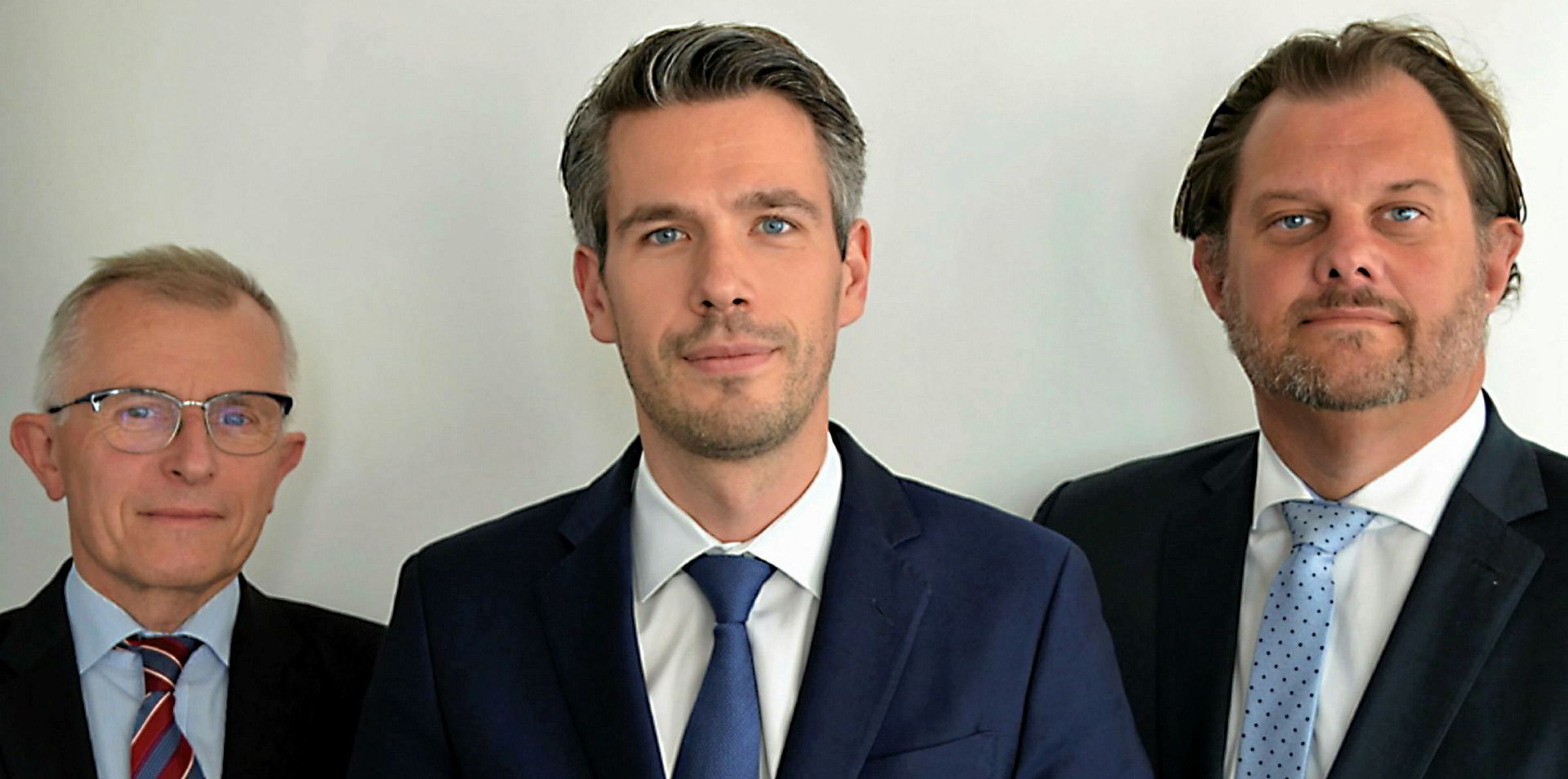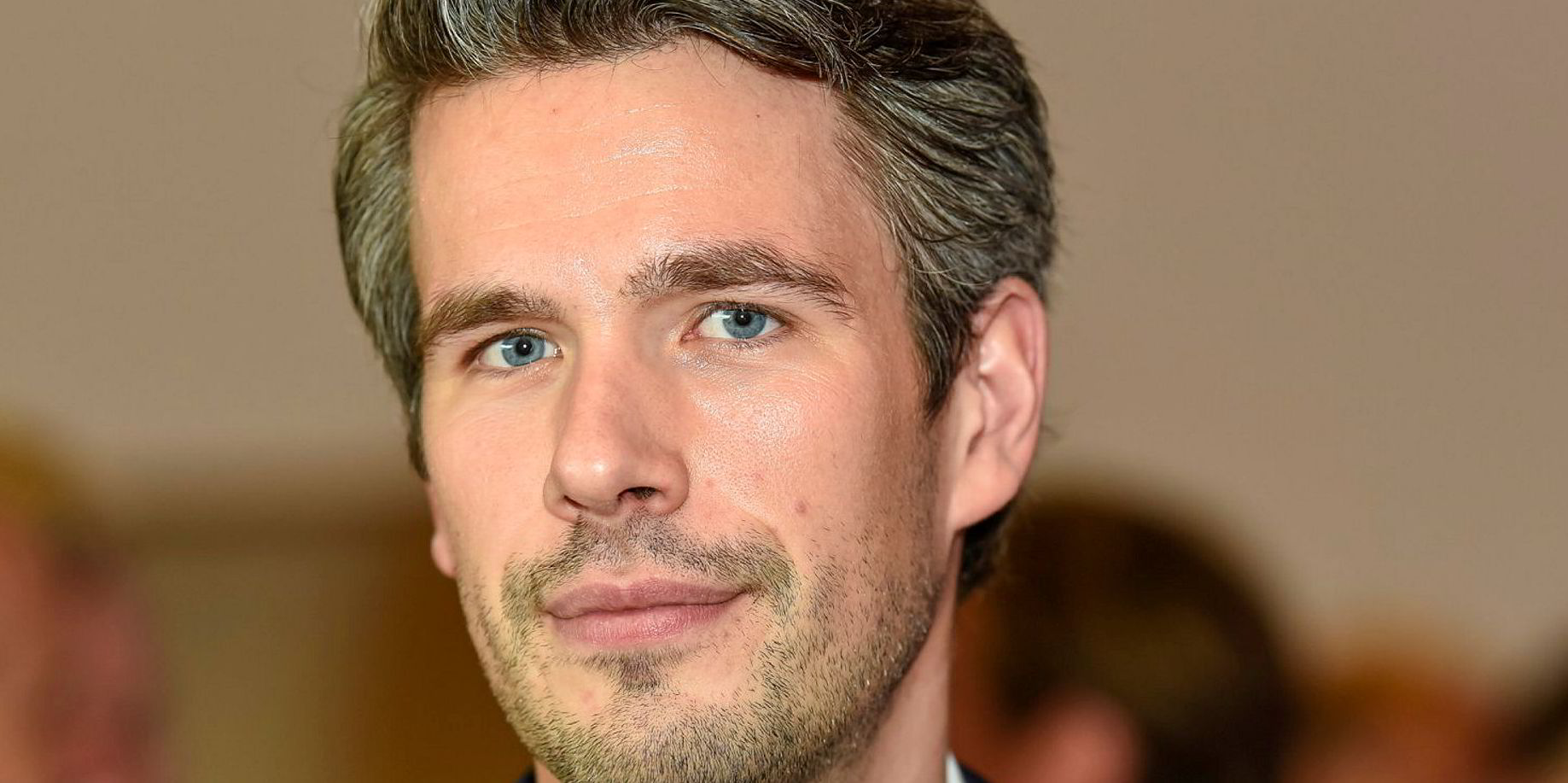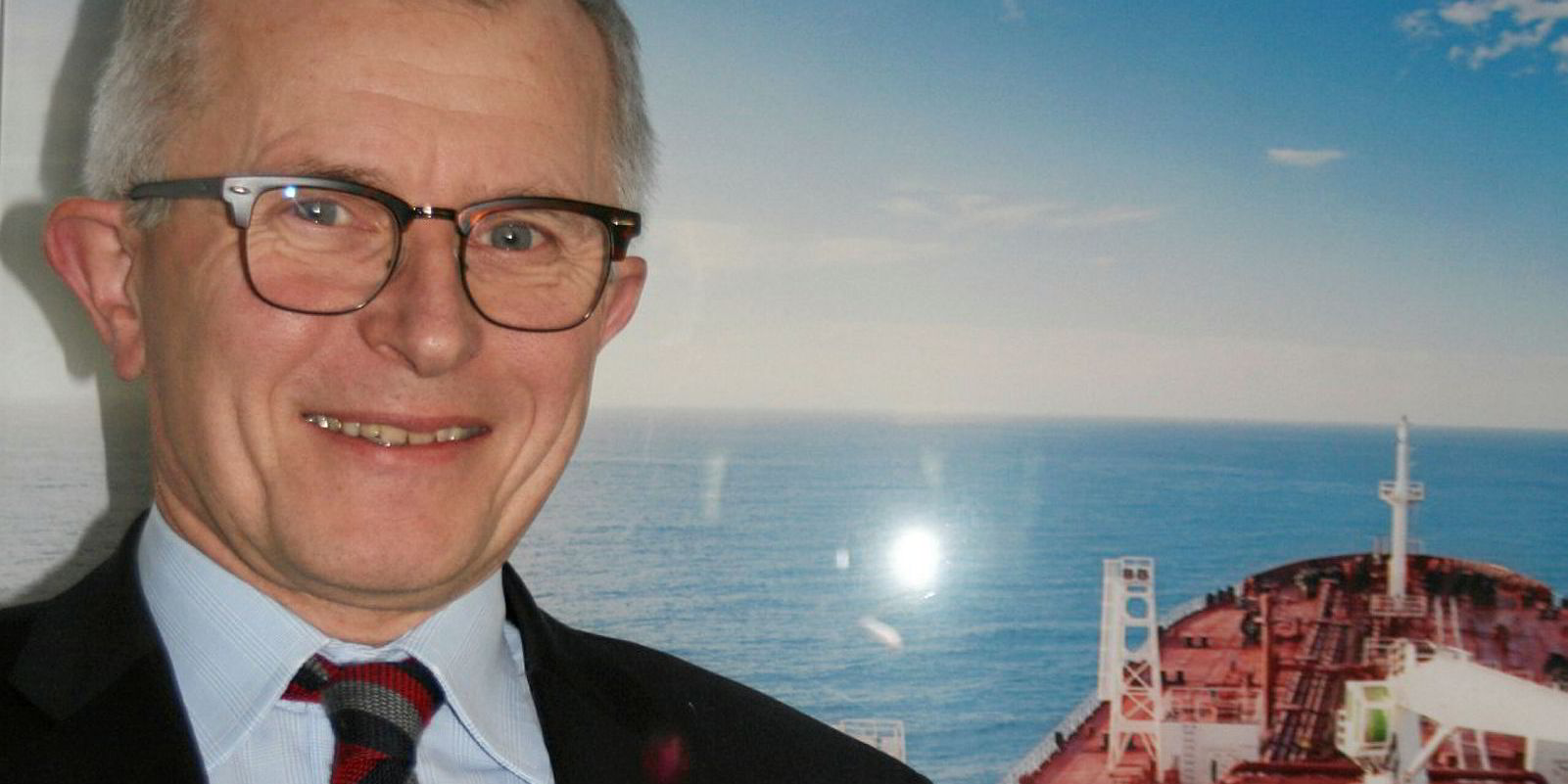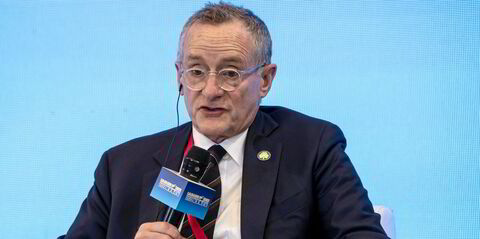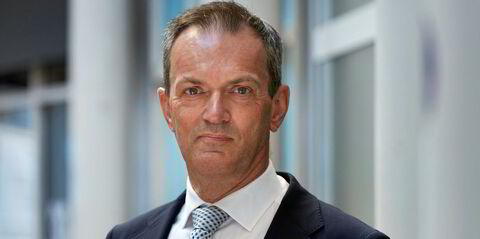Hamburg shipmanager and owner Chemikalien Seetransport (CST) has steadily expanded the size of its fleet as it rebuilds toward its half-century celebrations.
The growth follows a period of retrenchment after the global financial crisis and the demise of the KG (limited partnership) system, which severely affected most German managers.
On 22 August, CST celebrated its 50th anniversary with a party for current and former colleagues at Hamburg’s International Maritime Museum.
The company’s fleet resurgence gained momentum last November when it acquired chemical and product tanker specialist Rigel Schiffahrts. The deal swelled its fleet by eight tankers. Three Rigel-managed, KG-funded product carriers were sold.
Then in July this year, four more LR1 product carriers were added when it struck a deal with Expedo Shipping.
The acquisitions have lifted CST’s fleet to 36 vessels under management from offices in Hamburg, Cyprus and Singapore, all chemical and product tankers, apart from three bulkers.
It takes CST to almost double the fleet of less than 18 months ago and close to its size of seven or eight years ago of more than 40 vessels when Peter Kramer was in charge.
Part of the fleet is fully owned, other ships are in joint venture structures and some are in pure third-party management.
Peter Kramer died in 2017. Since then, CST and sister company Marine Service have been guided by his son Christian and lieutenants Hylke Boerstra and Oliver Hennes.
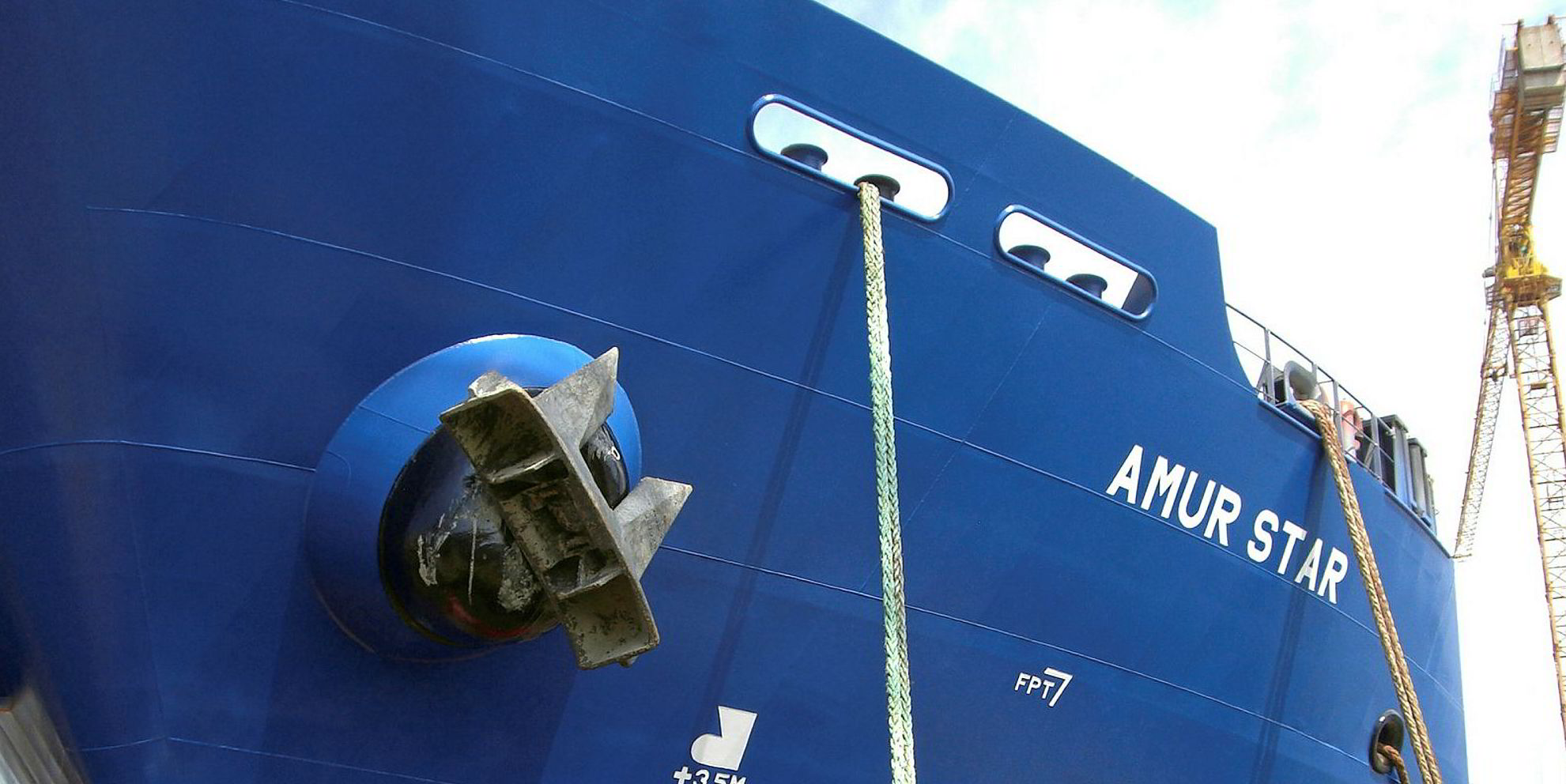
Boerstra is managing director, alongside chairman Christian Kramer, of holding company Dr Karl-Heinz Kramer. Hennes is joint managing director with Kramer of CST and is responsible for the technical side of the business.
CST purchased 100% of the shares in Rigel and has since moved that company’s Bremen office to its own Hamburg headquarters.
Several key personnel are said to have followed, but not Rigel’s former owners, who, through an intermediary, had approached CST as a potential buyer.
Christian Kramer said the eight 13,000-dwt chemical tankers involved in the deal were a “logical fit” for CST as they were similar to six it sold a few years ago — all built at 21st Century Shipbuilding in South Korea.
“The opportunity came along and we grabbed it,” said Kramer, who disclosed that the purchase of Rigel was concluded relatively swiftly — two-and-a-half months from the start of talks. “We made our calculations as to whether it made sense financially and strategically. It made a lot of sense.”
‘We’re very happy’
The Rigel name has been changed to CST Schiffahrts GmbH & Co KG, to maintain a common brand in the market, but commercial management has remained with the same Swedish company, Furetank.
CST is primarily a technical manager but Kramer said it maintains commercial responsibilities for its fleet in the sense of evaluating pools, reporting to investors and fixing time charters. However, it does not handle spot chartering itself.
Kramer declined to comment on the price paid for Rigel and the source of the funds. “But we are very happy with the purchase,” he said. “Rigel is known in the market for running very good ships.”
Boerstra said the acquisition has brought economies of scale and quality vessels to the fleet. “They were very well managed and in good shape when they came to us,” he told TradeWinds.
The coated Expedo LR1s — the New Challenge, New Champion, New Century and New Confidence (all built 2005) — were reported by brokers to have cost an average of around $8.9m each, but again Kramer declined to confirm.
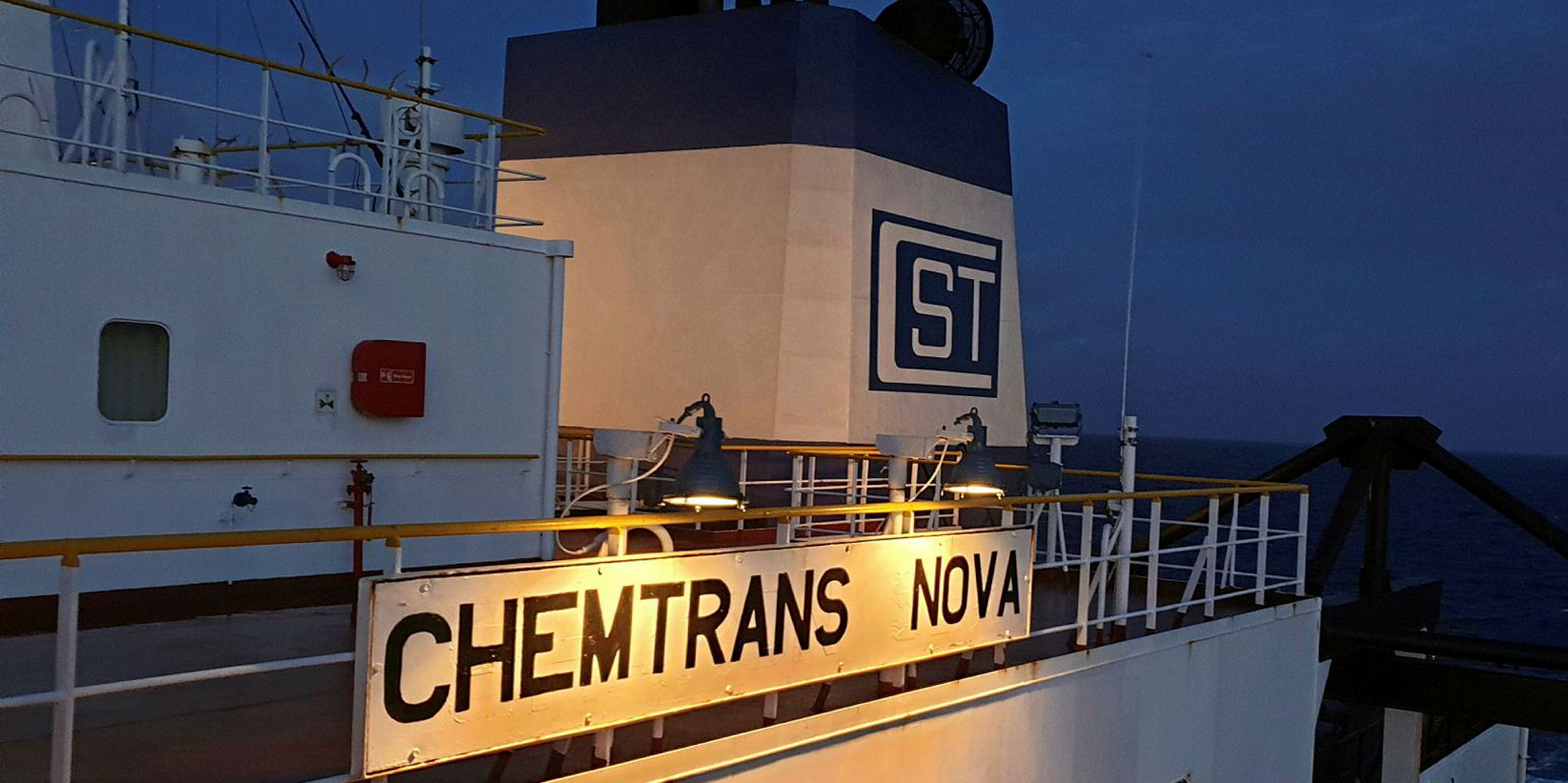
Expedo is also known for running very good ships, Boerstra said. The 73,900-dwt vessels join similar CST LR1s built at the same Chinese yard, New Century.
CST and Expedo have been partners for many years in a couple of product tanker pools.
Kramer, who previously worked for Maersk Tankers and Credit Suisse, said CST would like to re-enter the LNG market. It managed LNG carriers until the end of 2014 and LPG tonnage up to late 2016.
During its LNG heyday, CST managed, at different times, about 25 LNG and LPG tankers.
“We still have the expertise in-house, including access to the seafarers and superintendents,” he said.
LNG fuel gas systems hardware provider Marine Service, established in 1958 by his grandfather Karl-Heinz Kramer, won a major accolade when German cruiseship builder Meyer Werft chose it as Partner of the Year in competition with around 6,500 yard suppliers.
Marine Service delivered the fuel gas system for the Meyer Werft-built, 183,900-gt, 5,000-berth AIDAnova (built 2018), the first cruiseship that can operate using only LNG. Similar projects are in the pipeline.
The company maintains its own technology and research test facility. “This is a growing market,” Kramer said.
Large LNG carriers may be out of CST’s reach for the time being, but it is interested in smaller vessels, including LNG bunker ships, and is “evaluating” whether there is an opportunity.
